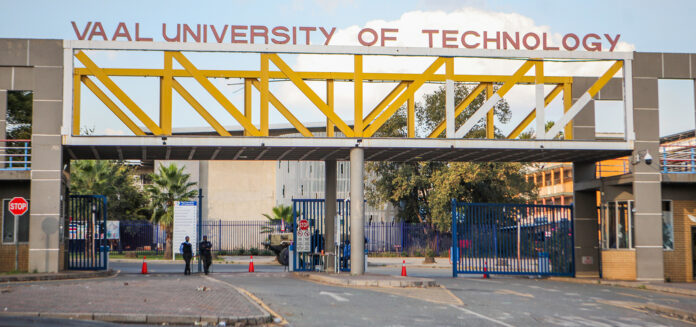The Vaal University of Technology (VUT) is gearing up to innovate in the chemical and energy sector after launching phase 1 of its hydrogen energy project.
The institution partnered with the largest bank on the continent, Standard Bank, to officially launch the Centre of Excellence for Hydrogen Energy.
This groundbreaking initiative marks a significant step towards advancing research, innovation and sustainable practices in South Africa’s hydrogen energy sector.
The project also catalyses clean energy solutions, as it places VUT as a global leader in hydrogen energy research.
The initiative aims to drive Africa’s green transition and contribute to a just energy
future.
Head of business and commercial banking at Standard Bank South Africa, Simone Cooper, said: “Hydrogen energy is one of the most exciting frontiers in South Africa’s journey to a sustainable future.
“By investing in this centre of excellence, Standard Bank is helping unlock the potential of research, academia, and finance working together to solve pressing energy challenges.
“Our commitment is not only to back innovation but also to ensure that solutions are inclusive, scalable and capable of driving economic growth across the country and continent.”
South Africa lacks a mature hydrogen energy system due to insufficient infrastructure for production, storage and transport, coupled with high production costs for green hydrogen, according to research conducted by Moumin Hussein, Tien-Chien Jen, and Patrick Ehi Imoisili from the Mechanical Engineering Science Department at the University of Johannesburg in December last year.
The study, which was released in May this year, revealed green hydrogen (GH2) to be a key component of South Africa’s clean energy transition, addressing critical gaps in understanding its technological, economic and infrastructural viability.
GH₂ is electricity produced from water, resulting in a near-zero carbon footprint.
“Using a mixed methods approach, the study integrates quantitative survey data to analyse public and stakeholder perceptions, alongside qualitative case studies of strategic ports, such as Coega and Saldanha Bay, to assess the practical implications of GH2 production and export.
“Findings reveal strong public support for GH2, with 83.5% of participants recognising its importance for the country’s energy future, driven by its environmental benefits and economic potential.
“However, significant challenges were identified, including high production costs and infrastructural deficiencies, particularly the lack of hydrogen storage and transportation infrastructure, which 80% of respondents highlighted as a major obstacle,” the study stated.
The researchers also stated that recommendations should be made for policy, infrastructure development, and educational initiatives to overcome these challenges and facilitate hydrogen energy integration into South Africa’s energy framework.
Professor Khehla Ndlovu, vice-chancellor and principal of the VUT, also emphasised the strategic importance of the partnership with Standard Bank.
“The Centre of Excellence for Hydrogen Energy represents a milestone in VUT’s research journey.
“By combining academic expertise with Standard Bank’s leadership in sustainable finance, we are positioning South Africa at the forefront of hydrogen energy innovation.
“This initiative will not only contribute to global research but also open new pathways for collaboration, investment, and economic development.
“Importantly, it will inspire our students and community to see themselves as active participants in shaping a sustainable future.”
Through the initiative, the centre has already attracted strong international interest, including partners from Europe, Asia, and Latin America, highlighting its potential to drive meaningful impact both regionally and globally.
Ndlovu also said that VUT is the only African member of a 13-partner European consortium exploring hydrogen innovation, placing South Africa firmly on the map of global clean energy research.



